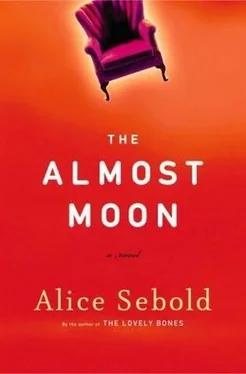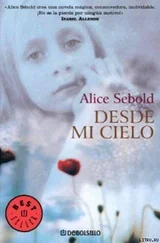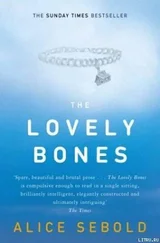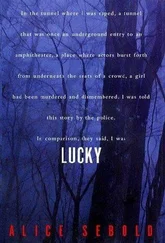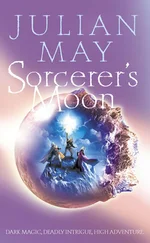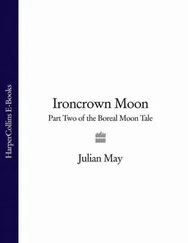Finally, when I had removed all evidence of her accident and retrieved a fresh sponge from where they were kept above the fridge, I unbuttoned my mother’s loose cotton shirt. I sliced away the straps of her old putty-colored bra. I squeezed out clean water from the sponge onto her breastbone.
Without the bra supporting it, my mother’s remaining breast had fallen so far to the side that her nipple almost grazed the floor. Her mastectomy scar, once a dark slash, was now barely a wrinkled whisper of flesh. “I know you suffered,” I said, and after kissing the fingertips of my hand, I traced them along her scar.
I must have been a teenager. It was still years before my father’s death. Years before she called me over to feel the hard mass just beneath her armpit. I was standing in the doorway, watching them.
“You know how hard it is for me,” my mother said to my father, tears streaming down her face. “Only you know.”
She had unbuttoned her shirt and held it open to him. “Clair!” he gasped. She had rubbed a bloody wound in the center of her chest. I always thought of it as an adult’s version of chicken, which was a game we played at school. Another kid would rub his nail across the inside of your wrist two hundred times. If you couldn’t bear it after the benign rubbing turned into a ribbon of blood, you yelled, “Chicken!” and were known by the name.
“Get your mother a warm towel,” my father said to me, and I bowed my head down. Getting the key to the linen closet from its secret place, I retrieved a fresh towel and ran the water in the bathroom until it grew warm.
The scar from what Jake had called her “martyr’s stigmata,” I would neither bathe nor touch.
I lifted her arms and cleaned the hairless armpits. I swept the sponge over the cap of her shoulders as I lowered her arms back down. I took my free hand and placed it under the drifting solitary bosom. What once was part of the glory she carried was now a lonely sack with the weight of feathers packed in the droopy corner of an old pillow. A surge of lust shot through me as I held it, as pure as an infant’s appetite.
The rose trellis that climbed up the back of our house was lush with vines and flowers by the time I was six or seven. The trellis surrounded both of the small windows in my bedroom, and so at the height of spring, my mother had to keep the flowers and shoots artfully trimmed. It was an operation I loved watching and so, I grew to realize, had my father. The two of them came into my bedroom. She was holding a basket with the handle looped over her arm. Her clippers and work gloves were tucked inside.
“Time for a little high-wire gardening,” my father said, and the two of them approached the first window, which was over an empty twin bed next to mine. I lay on the soft maw of my mattress and watched my father watching my mother as the window took the top half of her body. It cut off her head, her hands, her arms, and her shoulders until, at its most extreme, when she was leaning backward, resting her hips against the window ledge, my father held on to her in a way I knew even then to be sexual. Sometimes he slid his hand up along her thigh. Once or twice I thought I heard a smile in her voice along with her admonishment.
Outside, there was a scuffle in the trees and then a cat’s low growling. Bad Boy was facing down another cat at the edge of our property.
I stood again and walked to the kitchen sink to dump and replace the water. I thought of the uncared-for bodies that lay strewn in the streets and fields of Rwanda or Afghanistan. I thought of the thousands of sons and daughters who would like to be in the position I was in. To have known exactly when their mothers died, and then to be alone with their bodies before the world rushed in.
I listened to the cats’ intermittent noises in the trees near the work shed. When I was growing up, there had been a hoot owl that came around every year and sat in the oak out back. My father would stand in the yard, holding me piggyback style, and hoot back at it. If it grew late and we stayed in the yard, my mother would join us, with lemonade for me and a neat scotch for the two of them.
I turned, resigned to finish quickly now, when the phone rang. I dropped the bowl, and the hot soapy water splashed out across the floor.
“Hello?” I said softly, as if the house were sleeping.
“You’re there!”
“Jake,” I said, “how did you know?”
“I couldn’t get you at your house, and I still have your mother’s number in my address book. How are you?”
I looked at my mother’s body. It seemed almost to glow in the darkened kitchen. “Good?” I said.
“Avery just called me. He said something might be wrong.”
“And you called here?”
“It seemed the place to start,” he said. “What’s wrong, Helen? Is it the girls?”
“My mother’s dead,” I said.
There was silence on his end. He had been my champion against her for the entire eight years of our relationship.
“Oh, Helen, I’m so sorry. When?”
I found I couldn’t speak. I made a gulping sound instead.
“I know how much she meant to you. Where are you?”
“We’re in the kitchen.”
“Who is?”
“Mother and me.”
“Oh, Jesus! You need to call someone, Helen. What happened? You need to hang up the phone and dial nine one one. Are you sure she’s dead?”
“Very,” I said.
“Then call nine one one and tell them that.”
I wanted to get off the phone and enter the nowhere state I’d just been in, where no one knew anything and my mother and I were alone together. There was no easy way to say what came next.
“I killed her, Jake.”
The silence was long enough that I had to repeat it.
“I killed my mother.”
“Describe to me what you mean,” he said. “Go slowly, and tell me everything.”
I told Jake about Mrs. Castle’s calling, about the Pigeon Forge bowl, about my mother’s accident. When I said “she had an accident,” he stopped me, his voice hopeful, and asked, “What kind of accident, Helen?”
“She lost control of her bowels.”
“Oh, God. Before or afterward?” he said.
“And then she called Mrs. Castle a bitch and raved about how people were stealing things from her.”
“Are they, Helen?” he asked, his voice leading discreetly into an adjoining room where sanity might dwell.
“No,” I said. “She’s lying here right in front of me on the floor. I broke her nose.”
“You hit her?” I could tell I was shocking him. It made me feel good.
“No, I pressed too hard.”
“Helen, are you crazy? Do you hear what you’re saying to me?”
“She was dying anyway. She’s been sitting up, dying, for the past year. Is it better that she should go to a hospice, babbling, and die in a pool of her own waste? At least I care. At least I’m bathing her.”
“You’re what?”
“I’m in the kitchen, bathing her.”
“Just a minute, Helen. Don’t go anywhere.”
I could hear the sound of Jake’s dogs. Emily had told me that every time she and the children visited, Jeanine spent the next week barking like a dog.
“Helen, listen to me.”
“Yes.”
“I want you to cover your mother’s body and stay in the house until I can get there, okay? I’ll get someone to look after the dogs and call you from the airport.”
“Mrs. Castle will come in the morning.”
“Does she have a key?”
“I don’t think so,” I said. “There was an incident a few months ago when someone broke in who’d been doing chores here. We got the locks changed, and I think Mrs. Castle never got a new key.”
“Helen?”
“Yes.”
“You have to listen to me now.”
Читать дальше
